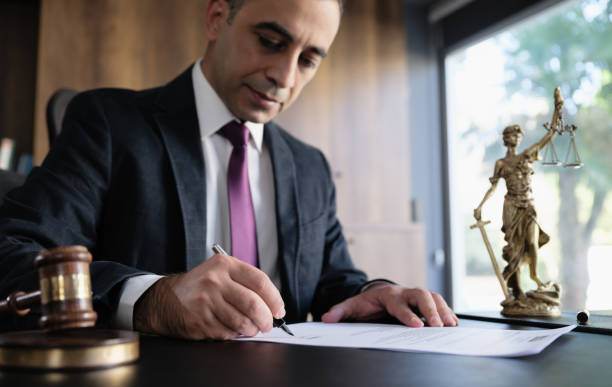If you or a loved one has been involved in an accident, the aftermath can be overwhelming and stressful. Navigating the legal landscape following an injury can often feel like an insurmountable challenge. In such times, a knowledgeable and experienced lawyer for accident injury can provide the support and guidance you need to seek justice and secure the compensation you deserve. Understanding how to choose the right attorney and the legal process can significantly influence the outcome of your case. In this extensive guide, we will explore everything you need to know about working with a lawyer for accident injury.
Why You Need a Lawyer for Accident Injury
When you’re involved in an accident that results in injury, having a skilled lawyer for accident injury on your side is crucial. Here are several reasons why hiring an attorney should be your first step:
- Expertise in Personal Injury Law: A lawyer specialized in accident injuries understands the intricacies of personal injury law, which can significantly impact your case.
- Assessment of Your Case: Seasoned attorneys can evaluate your accident details and determine the potential value of your claim, ensuring you are not under-compensated.
- Negotiation Skills: Insurance companies often aim to minimize payouts. A proficient lawyer can negotiate effectively on your behalf to secure a fair settlement.
- Legal Representation: If your case goes to court, having a lawyer who is well-versed in trial procedures will be invaluable.
- Professional Support: Navigating post-accident paperwork, medical bills, and legal filings can be daunting. A lawyer can manage these tasks efficiently.
Factors to Consider When Hiring a Lawyer for Accident Injury
Choosing the right lawyer for accident injury entails careful consideration of various factors that can influence your case’s success. Here are significant aspects to keep in mind:
Experience in Personal Injury Cases
Look for a lawyer who has substantial experience specifically in accident injury cases. Their expertise can make a significant difference in the likelihood of a successful outcome.
Track Record of Success
Research the attorney’s past case results. A successful track record in obtaining compensation for previous clients indicates competence and effectiveness.
Client Reviews and Testimonials
Reading reviews from former clients can provide insight into the attorney’s effectiveness, professionalism, and commitment.
Fees and Payment Structure
Most personal injury lawyers operate on a contingency fee basis, meaning they only get paid if you win your case. Clarify the fee structure upfront to avoid any surprise costs later on.
Communication Style
An effective attorney must communicate clearly and keep you informed throughout the process. Make sure their communication style aligns with your preferences.
Personal Connection
Your lawyer for accident injury should feel like an ally. Establishing a rapport can lead to a more comfortable and cooperative working relationship.
The Accident Injury Claim Process
Understanding the claim process can alleviate much of the stress involved after an accident. Here’s a detailed breakdown of what to expect:
Step 1: Filing a Claim
Your attorney will assist in filing your claim with the appropriate insurance company. This may require the submission of various documents supporting your injury and the circumstances of the accident.
Step 2: Investigation
The lawyer will conduct a thorough investigation to gather evidence, which may involve interviewing witnesses, reviewing police reports, and obtaining medical records.
Step 3: Documentation of Damages
It’s essential to document all expenses and losses associated with the accident. Your lawyer will help assemble this evidence to support your claim, including medical bills, lost wages, and pain and suffering.
Step 4: Negotiation
Once all information is compiled, your lawyer will start negotiations with the insurance company. The goal is to reach a fair settlement without needing to go to trial.
Step 5: Trial (if necessary)
If an agreeable settlement is not reached, your case may go to trial. Your attorney will prepare your case, present evidence, and advocate on your behalf in court.
Common Types of Accident Injuries
Accidents can lead to a wide range of injuries, each varying in severity and implications for recovery. Here are some common types of accident-related injuries:
- Whiplash: Often caused by rear-end collisions, whiplash results from the neck being forcibly moved back and forth.
- Broken Bones: Fractures can occur in any type of accident, from car crashes to slips and falls.
- Traumatic Brain Injuries: These occur when an external force impacts the head, potentially leading to long-term effects.
- Spinal Cord Injuries: These can lead to paralysis and often require extensive medical care and rehabilitation.
- Soft Tissue Injuries: Contusions, sprains, and strains affect muscles and ligaments and can be incredibly painful.
- Internal Injuries: Accidents can also lead to damage to organs, which may not be immediately apparent.
Understanding Compensation for Accident Injuries
After suffering an injury in an accident, it’s vital to understand the types of compensation that may be available to you. Here’s a breakdown:
Medical Expenses
This category covers all costs associated with treating your injuries, including hospital bills, surgeries, physical therapy, and ongoing medical care.
Lost Wages
If you’re unable to work due to your injuries, you may claim compensation for lost income. This includes not only past wages but also future earnings, depending on the severity of your situation.
Pain and Suffering
This compensates for the physical pain and emotional distress caused by the accident. Although this amount can vary significantly, it is an essential component of many personal injury claims.
Property Damage
If your property, such as a vehicle, was damaged in the accident, you could seek compensation for repair or replacement costs.
Future Medical Expenses
In cases where long-term care is required, you may be eligible for compensation for future medical expenses resulting from your injuries.
Frequently Asked Questions
What should I do immediately after an accident?
After an accident, ensure your safety and that of others, seek medical help if needed, gather evidence, document the accident scene, and contact a lawyer for guidance.
How do I choose the right lawyer for my case?
Look for experience in personal injury law, a successful track record, positive reviews, clear communication, and a fee structure that works for you. Personal comfort and rapport with the lawyer are also essential.
What does a lawyer do in an accident injury case?
A lawyer for accident injury will assist in filing the claim, negotiating with insurance companies, and representing you in court if necessary. They will also gather evidence to support your case and advise you throughout the process.
Will I have to go to court for my case?
Not necessarily. Many personal injury cases are settled out of court through negotiation. However, if a fair settlement cannot be reached, your lawyer may recommend taking your case to trial.
How long will my case take?
The duration of your case can vary significantly based on the complexity of the incident and the willingness of the insurance company to negotiate. Some cases settle quickly, while others may take months or even years.
In conclusion, navigating the aftermath of an accident can be challenging, but having the right lawyer for accident injury on your side can make all the difference in your recovery journey. By understanding the legal process, knowing what to expect, and actively participating in your case, you can position yourself for the best possible outcome. Whether you’re seeking to understand your rights, weigh your options, or file a claim, professional legal assistance is invaluable in these trying times.




